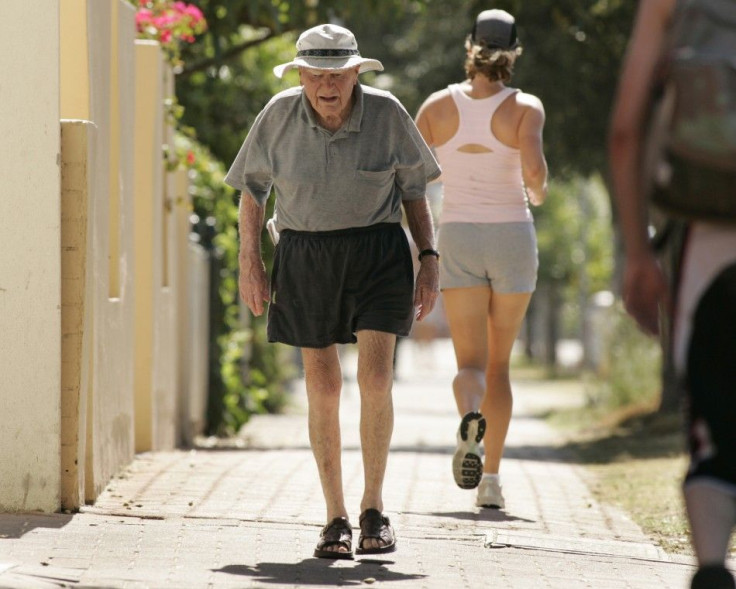Oxygen Keeps Pace with Older Runners

Age catches up with everyone, but it needn't outpace runners.
Joggers over the age of 60 use oxygen as efficiently as younger runners, suggestive that senior pavement pounders can run at a clip even into extreme old age, according to research.
A person's running economy -- a term that denotes how much oxygen a body takes in while pacing - does not change with age, even as older bodies tend to slow down, researchers found.
That really jumped off the page, Timothy Quinn, lead author and exercise professor at University of New Hampshire, said in a statement. It was surprising, but in a good way.
The Journal of Strength and Conditioning Research published the study online Tuesday.
Though oxygen uptake was the same between senior and junior runners, the 60-plus crowd had a more difficult time transporting and using oxygen during exercise, the researchers found.
For the runners over age 60, it's physiologically more difficult to run at that speed, even though the absolute oxygen uptake value is the same as a younger runner, Quinn said.
Only 8 percent of Americans over the age of 55 take up running, according to data from the Bureau of Labor Statistics released in 2008. In comparison, half of adults over 55 get exercise from walking.
Older runners aren't as likely to become disabled and live longer than their more sedentary cohorts, according to a 21-year longitudinal study updated in the Archives of Internal Medicine in 2008.
Over the 21 year span, researchers followed 50-year old runners along with healthy non-runners starting in 1984.
At the 19-year point, 15 percent of 284 participating runners had died, the researchers found, less than half of the 34 percent deaths found in the non-runners.
The three Achilles heels for older runners turned out to be strength, power, and flexibility that greatly decreased with age even as oxygen uptake stayed the same.
However, the researchers encouraged older runners to make up the difference and keep running.
Strength declines with age, but you can minimize that if you do strength training. It doesn't take a lot to maintain strength, Quinn said in a statement. We need to set up programs that enhance strength, especially upper-body strength, and power. They'll be better runners for it.
© Copyright IBTimes 2024. All rights reserved.











